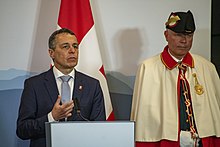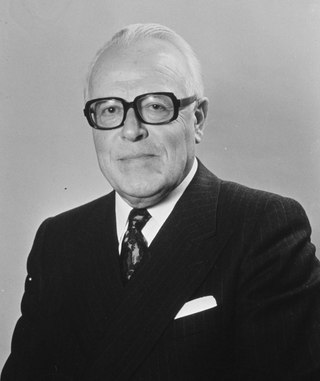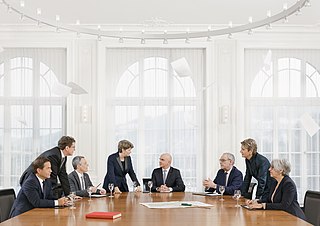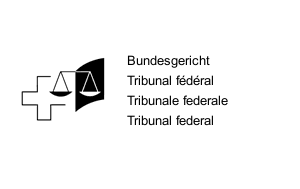This article needs additional citations for verification .(December 2009) |



The French word huissier ("doorman", from huis, an archaic term for a door) designates ceremonial offices in France and Switzerland.
This article needs additional citations for verification .(December 2009) |



The French word huissier ("doorman", from huis, an archaic term for a door) designates ceremonial offices in France and Switzerland.
In French government ministries and Parliament, a huissier is an employee who provides general service to the minister or assembly (transmitting messages, handling ballot boxes, etc.). Traditionally, they wear a chain around the neck, because their original function was to lock and unlock doors.
Before the Revolution, the title could be a court office in the household of royalty, as a type of valet de chambre.
In Switzerland, huissier is the French equivalent of German Weibel (also Amtsweibel), the term for a ceremonial office in Swiss cantonal and federal governments, parliaments, and courts of law. At the federal level, the office is known as Bundesweibel, at the cantonal level as Standesweibel for governments, Ratsweibel for parliaments and Gerichtsweibel for courts of law. Some cities also have office at the communal level (Stadtweibel).
Swiss huissiers in their official capacities wear ceremonial robes with the heraldic colours of the entity they represent, Bundesweibel in red and white, cantonal Weibel in cantonal colours (Standesfarben).

Switzerland, officially the Swiss Confederation, is a landlocked country located at the confluence of Western, Central and Southern Europe. It is bordered by Italy to the south, France to the west, Germany to the north and Austria and Liechtenstein to the east.

Switzerland is a semi-direct democratic federal republic. The federal legislative power is vested in the two chambers of the Federal Assembly: the National Council and the Council of States. The Federal Council holds the executive power and is composed of seven power-sharing Federal Councillors elected by the Federal Assembly. The judicial branch is headed by the Federal Supreme Court of Switzerland, whose judges are elected by the Federal Assembly.

The four national languages of Switzerland are German, French, Italian, and Romansh. German, French, and Italian maintain equal status as official languages at the national level within the Federal Administration of the Swiss Confederation, while Romansh is used in dealings with people who speak it. Latin is occasionally used in some formal contexts, particularly to denote the country.

Pierre Graber was a Swiss politician and member of the Swiss Federal Council (1970–1978).

The 26 cantons of Switzerland are the member states of the Swiss Confederation. The nucleus of the Swiss Confederacy in the form of the first three confederate allies used to be referred to as the Waldstätte. Two important periods in the development of the Old Swiss Confederacy are summarized by the terms Acht Orte and Dreizehn Orte.
A presidency is an administration or the executive, the collective administrative and governmental entity that exists around an office of president of a state or nation. Although often the executive branch of government, and often personified by a single elected person who holds the office of "president", in practice, the presidency includes a much larger collective of people, such as chiefs of staff, advisers and other bureaucrats. Although often led by a single person, presidencies can also be of a collective nature, such as the presidency of the European Union is held on a rotating basis by the various national governments of the member states. Alternatively, the term presidency can also be applied to the governing authority of some churches, and may even refer to the holder of a non-governmental office of president in a corporation, business, charity, university, etc. or the institutional arrangement around them. For example, "the presidency of the Red Cross refused to support his idea." Rules and support to discourage vicarious liability leading to unnecessary pressure and the early termination of term have not been clarified. These may not be as yet supported by state let initiatives. Contributory liability and fraud may be the two most common ways to become removed from term of office and/or to prevent re-election.
Chancellor is a title of various official positions in the governments of many nations. The original chancellors were the cancellarii of Roman courts of justice—ushers, who sat at the cancelli or lattice work screens of a basilica or law court, which separated the judge and counsel from the audience. A chancellor's office is called a chancellery or chancery. The word is now used in the titles of many various officers in various settings. Nowadays the term is most often used to describe:

The Federal Council is the federal cabinet of the Swiss Confederation. Its seven members also serve as the collective head of state and government of Switzerland. Since after World War II, the Federal Council is by convention a permanent grand coalition government composed of representatives of the country's major parties and language regions.

Municipalities are the lowest level of administrative division in Switzerland. Each municipality is part of one of the Swiss cantons, which form the Swiss Confederation. In most cantons, municipalities are also part of districts or other sub-cantonal administrative divisions.
The German term Bezirk translated as "district" can refer to the following types of administrative divisions:

The Federal Supreme Court of Switzerland is the supreme court of the Swiss Confederation and at the head of the Swiss judiciary.

The Federal Assembly, also known as the Swiss parliament, is Switzerland's federal legislature. It meets in Bern in the Federal Palace.

The Federal Constitution of the Swiss Confederation of 18 April 1999 is the third and current federal constitution of Switzerland. It establishes the Swiss Confederation as a federal republic of 26 cantons (states). The document contains a catalogue of individual and popular rights, delineates the responsibilities of the cantons and the Confederation and establishes the federal authorities of government.
The Swiss order of precedence is a hierarchy of important positions within the government of Switzerland. It has no legal standing but is used by ceremonial protocol. The order of precedence is determined by the Protocol Regulations and the Table of Precedence of the Federal Department of Foreign Affairs. Unless otherwise noted, precedence among persons of equal rank is determined by seniority. As a general rule, spouses share the same rank.
The Swiss Confederation comprises the 26 cantons of Switzerland.
The copyright law of Switzerland is based on the concept of "author's rights", which is similar to the French copyright law, instead of the concept of copyright used in common law jurisdictions. The current copyright law of Switzerland is the Swiss Federal Copyright Act of 1992, which dates from October 9, 1992 and has only seen minor revisions since then. In October 2007, a revision was approved in order to implement the WIPO Copyright Treaty in the act, a process started in 2004 with the release by the Swiss Federal Council of a draft project.
Women in Switzerland gained the right to vote in federal elections after a referendum in February 1971. The first federal vote in which women were able to participate was the 31 October 1971 election of the Federal Assembly. However it was not until a 1990 decision by the Federal Supreme Court of Switzerland that women gained full voting rights in the final Swiss canton of Appenzell Innerrhoden.
A mandatory referendum, also known as an obligatory referendum, is a referendum that is legally required to be held under specific circumstances. This is in contrast to an optional referendum, which comes from either by public or legislative request. The actions that require mandatory referendums are set by law and normally concern major governmental actions or matters of large public significance. The most commonly found example worldwide of a mandatory referendum is a required referendum to adopt or amend a national constitution, which exists in many countries.
The optional referendum is a referendum which comes from a request by governmental authorities or the public. The best known types of optional referendums is the popular initiative to request a law, and the popular referendum to repeal a law. The collection of signatures from the public is normally necessary to organize an optional referendum, but some jurisdictions allow government agencies to request for a referendum also. It is a form of direct democracy.